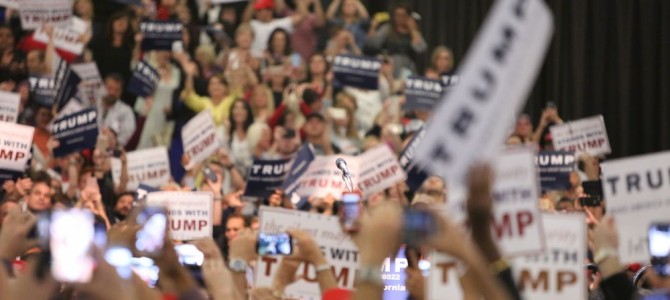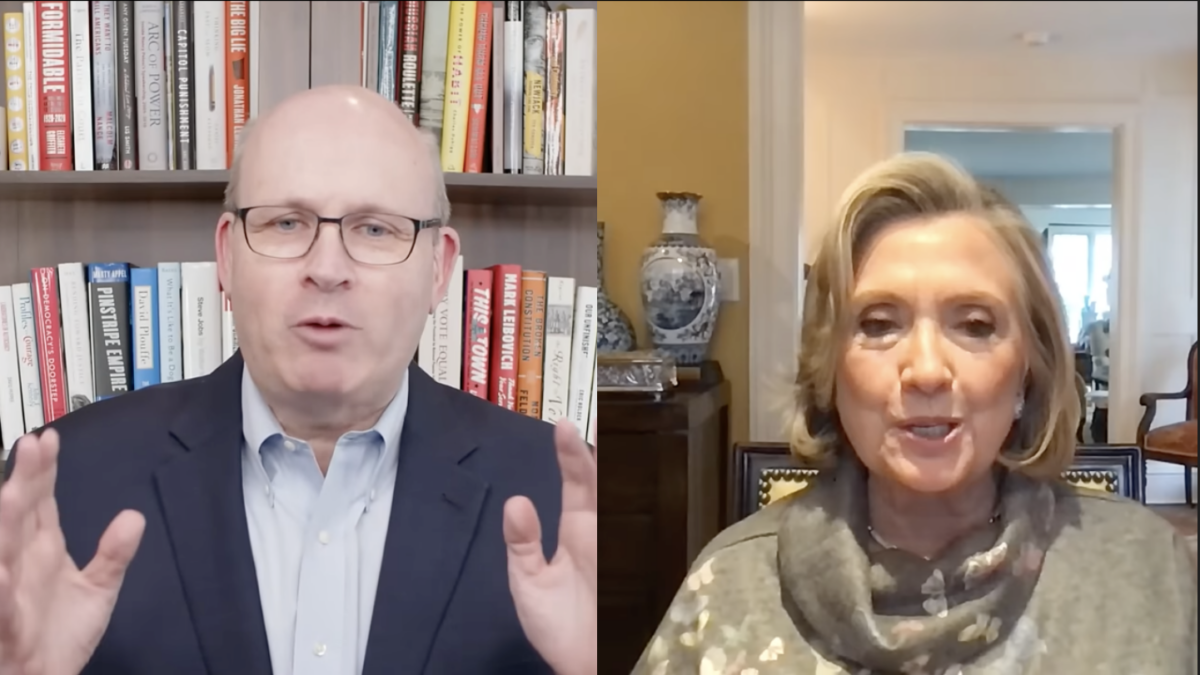
Let us get something out of the way up front: Donald Trump will almost certainly be the Republican nominee for president in 2016. Although he only garnered a plurality of primary votes, Trump has been the presumptive nominee since May 3. Republican National Committee Chairman Reince Priebus has declared it so.
But this does not have to be. A long-shot effort could see a different candidate take the stage next week at the Republican National Convention. Here’s how.
The Republican nominee for president will officially be chosen by the delegates at the national convention in Cleveland. Assuming everyone who is supposed to show up does, 2,472 delegates will attend, having been selected by various means according to their state and territory party bylaws. The only rule controlling whom these delegates must vote for when it comes time to nominate the Republican candidate for president is the rule they choose for themselves at the beginning of the convention.
Bound Delegates Aren’t Really Bound
Amid all the misinformation about “bound” delegates—particularly the claim by Trump supporters that delegates are bound to vote for Trump on at least the first ballot—this might come as something of a surprise. It works like this.
The national committee rules currently in effect were enacted on the first day of the Tampa convention in 2012. These rules expire as soon as the Cleveland convention is gaveled into session on Monday. At that time, the gathered delegates will vote to enact new rules governing the Cleveland convention and, generally, the national committee for the next four years. To the extent the national committee rules conflict with state party rules, including rules binding delegates, national committee rules supersede state party rules.
With respect to binding delegates, among other things, the Tampa rules included Rule 16, which purports to require delegates to vote according to the primary election results for their state or territory either in winner-take-all or proportional fashion depending on the state or territory party rules. If the delegates choose to enact something identical to Rule 16 on Monday, there will be no practical way to prevent Trump from receiving the 1,237 delegates he needs to become the Republican nominee on the first ballot.
Importantly, there is no party rule requiring the delegates to vote to enact a Rule 16 analogue next week. There is a wrinkle, however. The Convention Rules Committee will present the delegates with the new Cleveland rules for an aye-or-nay vote on Monday, and this committee is working from the Tampa rules, including Rule 16.
The Conscience Clause
A vote will take place later this week in the Rules Committee to add what is being called a “conscience clause,” which would allow delegates to vote their conscience rather than be bound. The committee is unlikely to adopt the conscience clause. However, it would only take 28 brave committee members to send the question to the delegates on the convention floor in what is known as a “minority report.” That would enable the delegates, if they choose, to adopt a version of the rules in which they would not be bound to vote against their conscience.
There is one more putative hurdle to unbinding delegates, at least for some, but it can be dispensed with quickly and thereafter ignored. Some, but not all, states have laws requiring convention delegates to vote according to their presidential primary results on at least the first ballot. But the Supreme Court long ago declared unconstitutional laws that compel political parties and their conventions to behave in ways contrary to the party’s own chosen rules, as a violation of the right of political association protected by the First Amendment. If there were any doubt of that, we need look no further than the recent federal district court decision enjoining the state of Virginia’s bound delegate law from operating at the Cleveland convention.
From all of this, there are some narrow routes to stopping Trump at the convention (other than an act of God or the sharp edge of a coffee table). However, all of these ploys rely on the premise that at the fateful moment a majority of delegates will want a candidate other than Trump.
First, the Convention Rules Committee could adopt a conscience clause amendment to Rule 16 late this week, which is then approved by majority vote of delegates on Monday. This scenario is unlikely because it would require the movers and shakers on the Rules Committee to give up their power to tell the delegates what to do.
Second, even if the full Rules Committee were not willing to pass a conscience clause, it would only take 28 members to send a minority report to the convention floor to be voted on by the delegates. The delegates would have to vote against the Rules Committee report and vote for the minority report to enact the conscience clause exemption to the bound delegate rule.
Or Delegates Could Revolt
Third, if the Rules Committee provides no alternative to Rule 16 and no minority report with a conscience clause is sent down to the delegates, a majority of delegates could still derail the Trump train by voting against the Rules Committee report. In that case, lacking a set of rules from the committee, a different set of “temporary” rules from the Tampa convention would govern the Cleveland proceedings, and those rules do not include a Rule 16 analogue binding the delegates.
Fourth, the longest of long shots exists where a majority of delegates approves a Rules Committee report that includes being bound a la Rule 16. In that circumstance, holdouts opposing Trump could potentially force a second ballot by having several hundred delegates abstain from voting on the first ballot. Most delegates become unbound after the first ballot owing to the interaction of Rule 16 and state party rules, meaning a second (or later) ballot could theoretically have enough votes to nominate a candidate other than Trump.
This final scenario is most unlikely for two reasons. As a matter of logic, if a majority of delegates were willing to nominate a candidate other than Trump after the first ballot, the same majority would presumably have voted down any Rules Committee report with Rule 16 and dispensed with being bound from the start. Moreover, as a matter of practicality, the nomination is typically done by voice vote, and it would have to be a very large group of delegates indeed to convince Priebus that sufficient delegates had abstained on the first ballot to require a second.
The bottom line is that any scenario resulting in a Republican nominee other than Trump requires a majority of delegates at the convention who both oppose Trump and are brave enough to risk the chaos in Cleveland that would surely follow nominating someone else. At present there is no reason to believe these delegates exist in sufficient numbers, despite Trump’s unpopularity. As a result, a conservative revolt against Trump in Cleveland, although technically possible, remains little more than a fanciful possibility.









